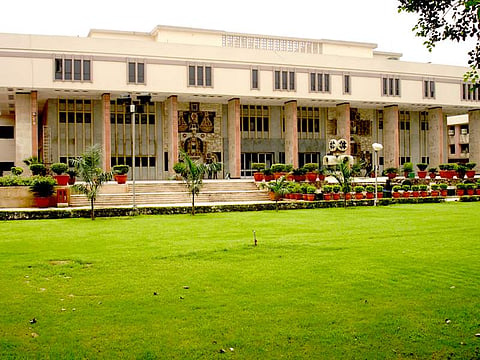

NEW DELHI: An Afghan national, arrested for allegedly raping a JNU student here, has been denied bail by the Delhi High Court which said there was every chance of him fleeing from justice.
The high court dismissed the bail application of Sulaiman Ahmadi, who has been staying in India as a refugee for 10 years, considering the serious nature of the accusation against him and that there was an apprehension that he may tamper with or win over vital witnesses.
Besides, Justice Vinod Goel looked into the severity of punishment in case of conviction, which can be up to life term, and said there was "every likelihood of the petitioner, an Afghan national, absconding or fleeing from justice".
The court said there was no ground in favour of the man to grant him bail as the material witnesses, including those who were at the spot and to whom the woman had narrated the episode soon after the incident, were yet to be examined.
The bail plea was opposed by the prosecutor who said as the accused was an Afghan national, there were chances of his fleeing from justice if bail was granted. He said vital witnesses, including the accused's friends who were at the spot, were yet to be examined and one of them had seen the two accused entering into the woman's bedroom where she was sleeping alone.
According to the prosecution, Ahmadi and his friend Tawab Ahmad alias Saleem, also an Afghan national, had allegedly raped a 21-year-old JNU student in South Delhi's Green Park area in January this year.
The court rejected the argument of Ahmadi's counsel that as the forensic samples of the body fluids found on the woman's clothes failed to match with that of the accused, he should be granted bail.
"It is trite that the medical evidence is a corroborative piece of evidence but where medical evidence does not support the otherwise clinching and trustworthy ocular evidence of any material witness, then the testimony of such ocular evidence shall prevail on the medical opinion and not vice versa," the judge said.
The prosecution had said the victim, a second year student of JNU, had gone to a pub in Hauz Khas village with her friend where she had met Saleem. It said he had invited the two women to his house in Green Park for a party.
It had said that when she went to Saleem's house along with her friend, three of his friends, including Ahmadi, were present. Eventually, her friend was dropped off at JNU. The woman told police she returned to Saleem's home and they consumed alcohol.
When the victim woke up in the morning, she saw Ahmadi allegedly forcing himself on her, the police alleged, adding that she later got to know that the two men had allegedly sexually assaulted her when she was not in her senses.
She went back to her hostel in JNU and narrated the incident to her two friends who immediately took her to the police station.
An FIR for the offence of rape and common intention was lodged at the Safdarjung Enclave police station here.
Both the accused were arrested and sent to judicial custody by a trial court which has been recording evidence in the case.